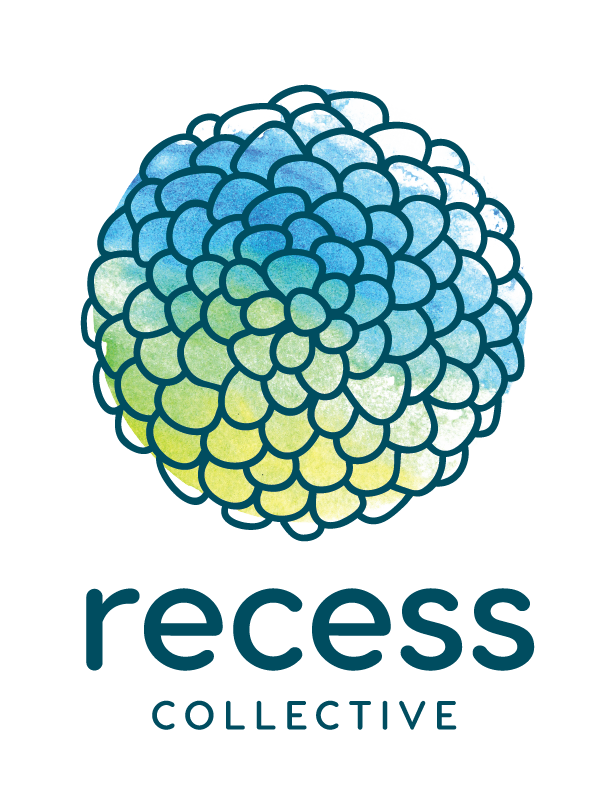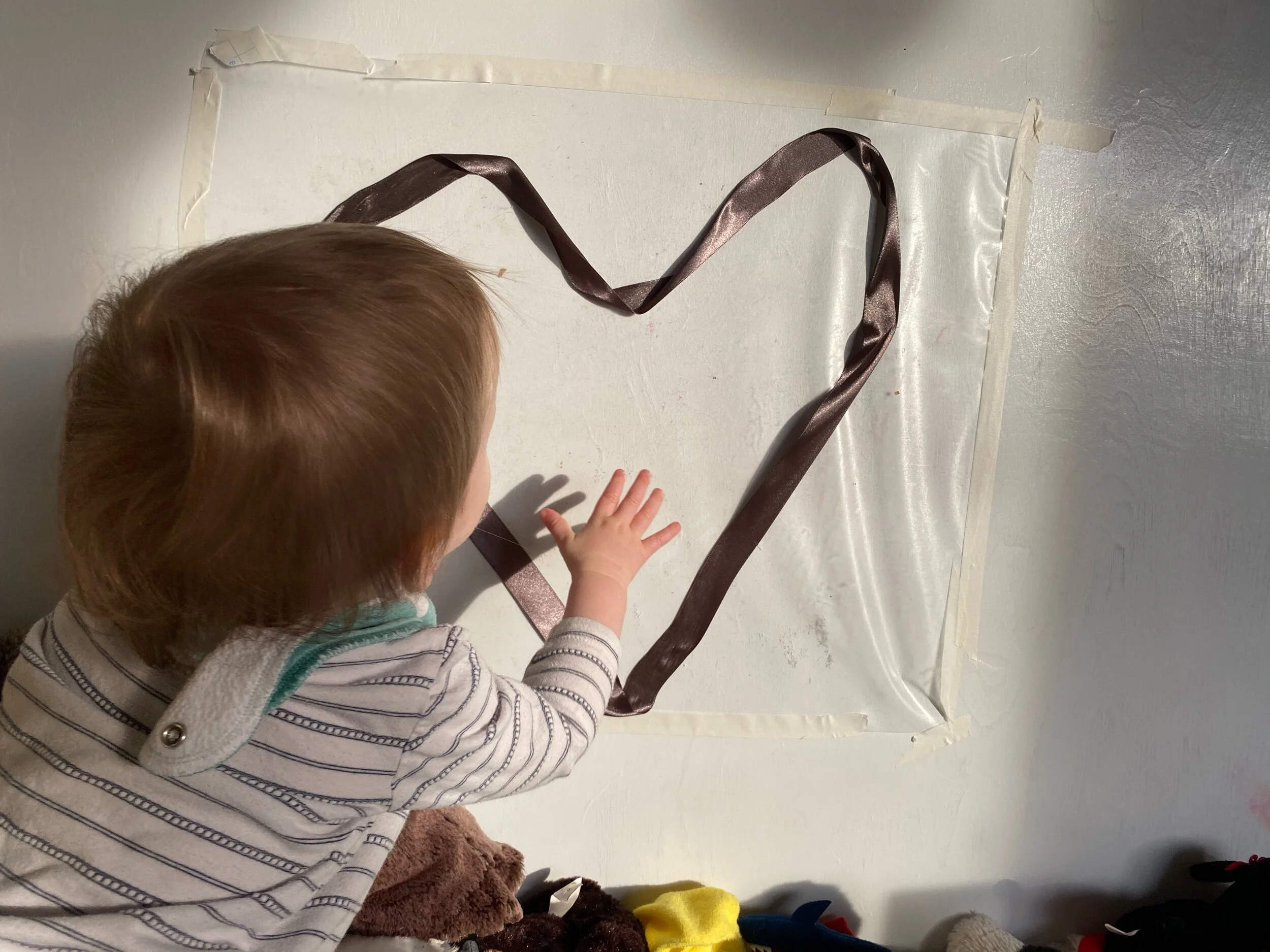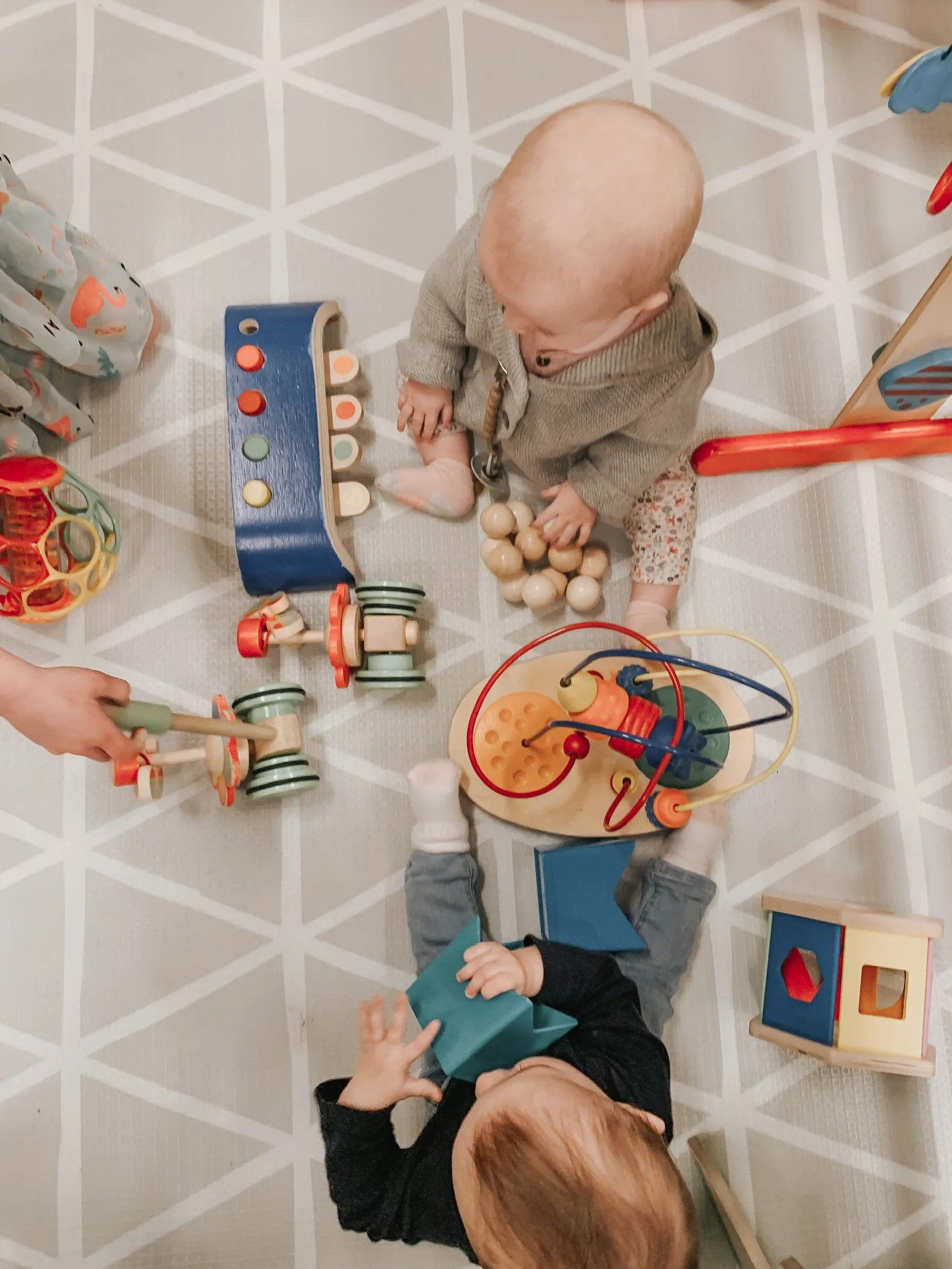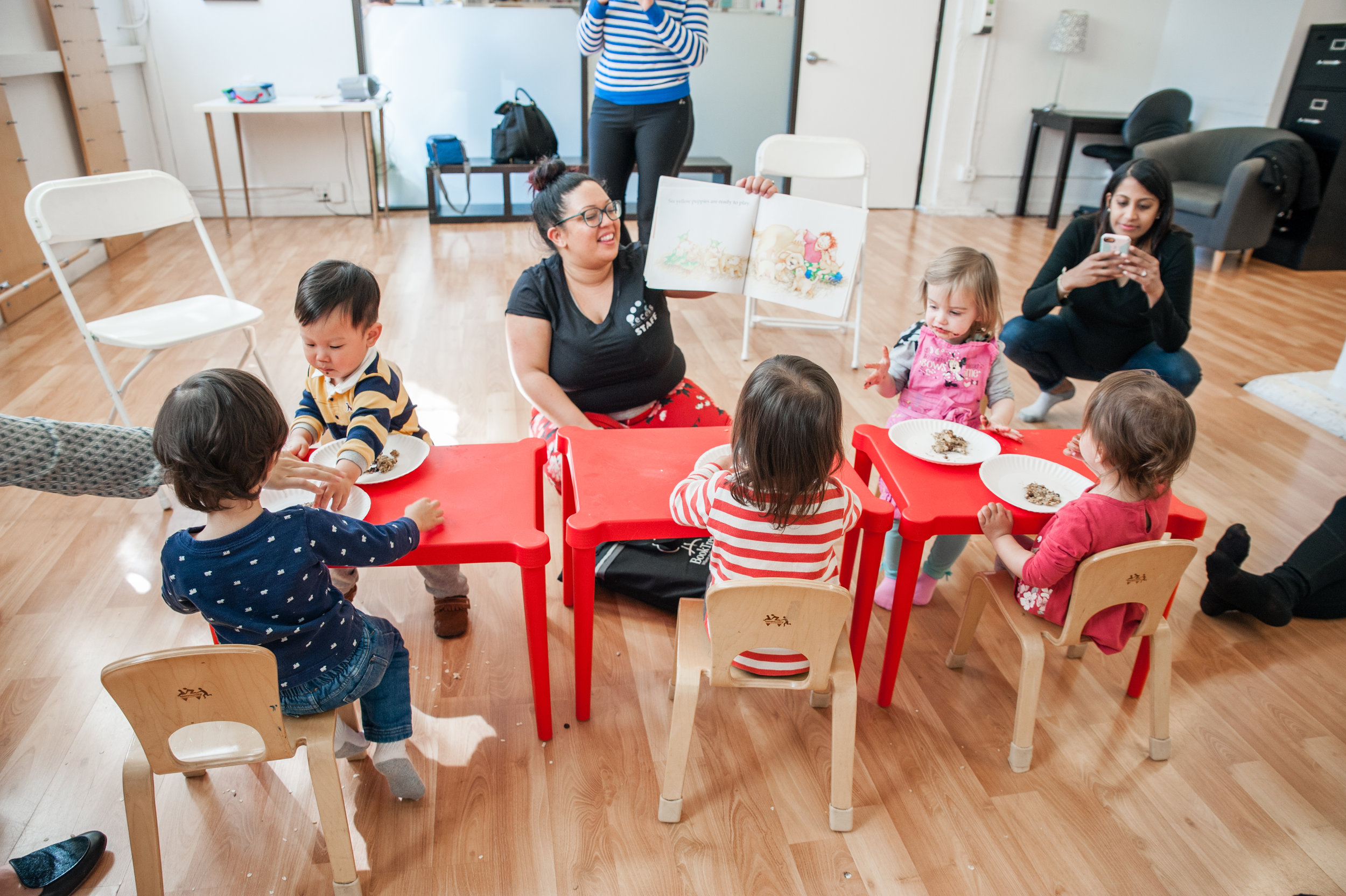Can Toddlers Really Cook?!
What do you actually do in Toddler Chefs?
We really do cook!
Here's how each class is structured. We begin each day with a "taste test." Every child smells, feels, tastes, and learns about each ingredient in the day's recipe.
Our chefs then take turns chopping, pouring, mixing, blending, rolling, mashing... all the steps needed to prepare the food for the stove or oven. Teacher Carissa usually handles the "cooking" portion of the class, while our little chefs take a break with blocks and puzzles.
When are food is ready, it's time for the best part - eating our creations!
Benefits of early exposure to cooking
In class, we chop, mix, blend, stir, crack, pour, and shake our ingredients together. All of these activities develop hand/eye coordination and fine motor skills. These are skills that are important for tying shoes, hand writing and typing.
Exposure to new tastes, textures and smells.
Especially with food, it's incredible to watch a toddler's openness to trying new things when they see other children trying new things too!
Children who play a key part of the cooking process have a boosted confidence and pride when enjoying the final product.
You'll gain strategies for involving your child in the cooking process at home (they really can do SO much!).
You'll learn fun, simple, quick recipes to can recreate at home.
Lay the foundation for preschool and beyond through the classroom format of this class. Your child will begin to practice listening to a teacher, sitting for extended periods of time, taking turns, practicing patience, interacting with peers... and more!
Some of our favorite creations so far:
- Pesto sauce with noodles
- Banana oat bars
- Funny face pizzas
- Fruity smoothies
- Hummus and crackers
- Quesadillas with guacamole
- Fried rice
- Veggie tostadas
- Lettuce wraps
AUGUST CLASSES BEGIN 8/7.
Tiny Toddler Chefs, 18-30mo, Mondays at 9:30am,
and Toddler Chefs, 2.5-4yrs, Mondays at 4pm.
Cost: $100 for the 4 week series (includes play before/after each class)
Members SAVE up to 25%!











